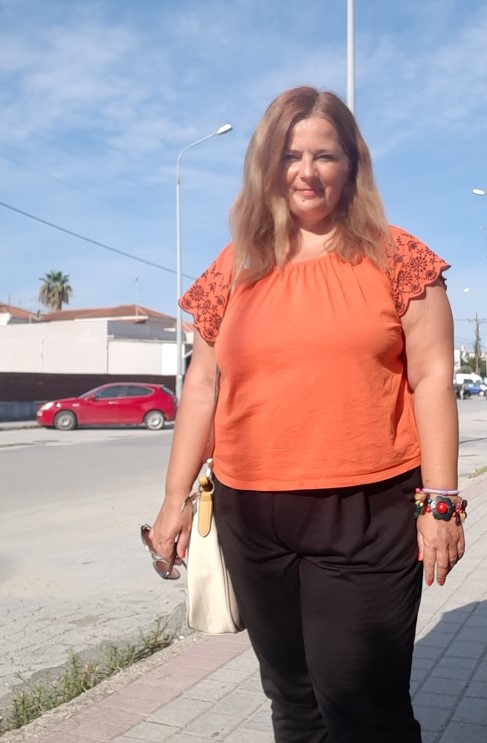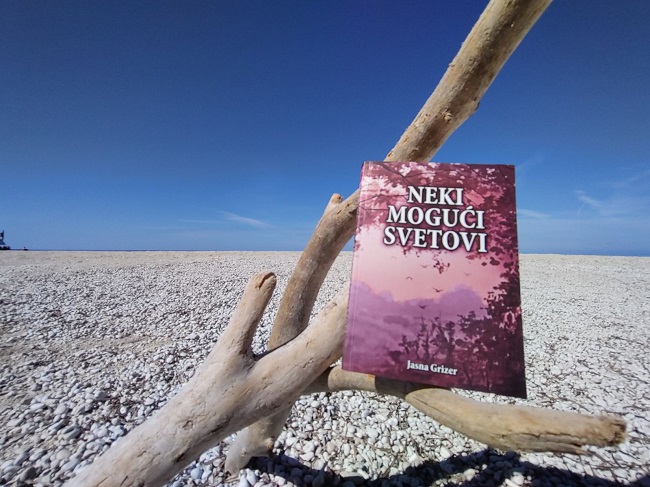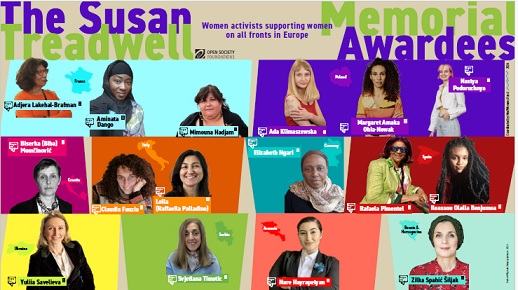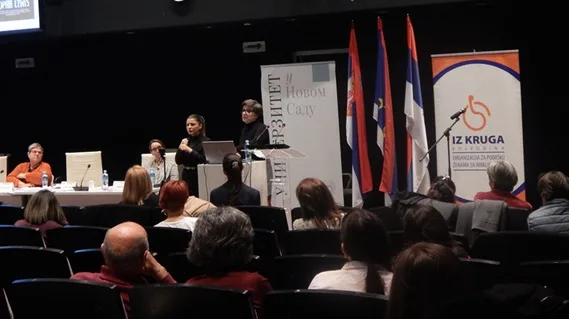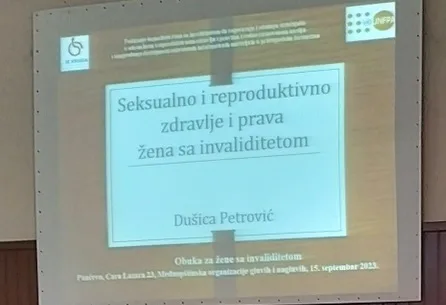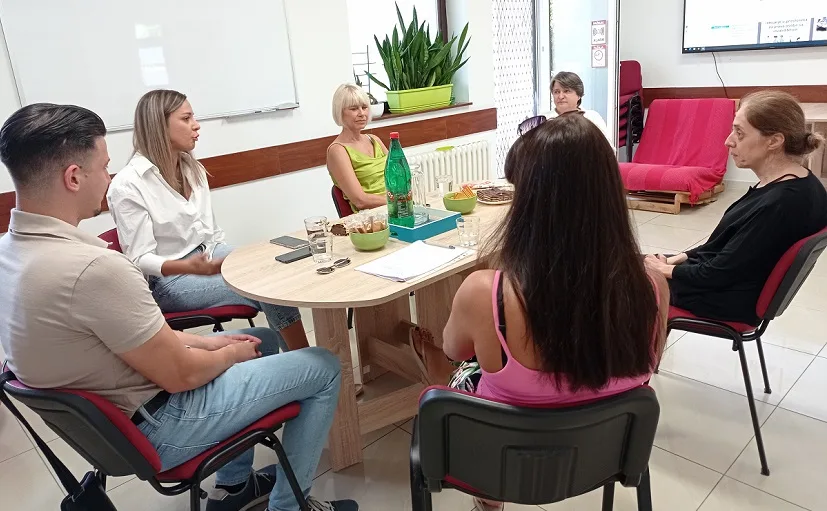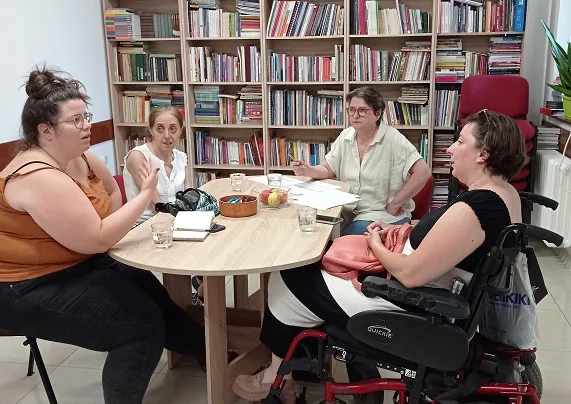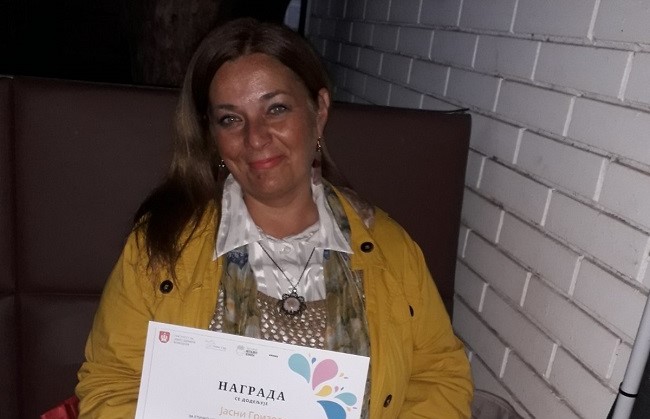Jasna Grizer, an associate of The Disability Portal, after a string of newspaper articles, interviews, love stories for women’s magazines, and humorous prose yarns (about parenting, mental health, and daily family life), published her first novel – Some Likely Worlds (Neki mogući svetovi).
Educational specialist and journalist by profession with years of experience in the humanitarian organization Caritas, Jasna is, with her engagement, trying to diminish the social distance towards people with invisible disabilities and undermine stereotypes about various mental conditions.
On the occasion of her debut novel, we talk to Jasna about her urge to write, finding her writer’s voice, creative processes, and heroines that are moving through Some Likely Worlds, between them and through us.
Can you remember how you discovered the urge to write?
– I do as if it was today. I started the first grade of primary school, and as soon as we began learning letters, even before, during the preparation for it, I was fascinated by the discovery that when you draw a line or write a letter, paper is not the same anymore. That revelation made me wish to change the color of paper then and as long as I exist. I started writing children’s poems in the first grade, and when the written assignments began, I used to be the first in the class to read mine. In the sixth grade, I wrote a novel, Sky over California, and in the eighth was awarded second place at the literary contest of our province. During high school, I wrote essays for my school friends as they wished – for A, B, or C, I adjusted my writing accordingly. And I was still the one reading my papers in front of the class.
Which books and authors make your literary field?
– My literary field broadened as I was growing up. Initial school reading lists – Desanka Maksimovic, Branko Copic, Brothers Grimm, Dusko Radovic, etc. It might look silly to name these authors first, but they really were my first encounter with literature, and they ignited my wild imagination. I mustn’t forget Mir-Jam, followed by Dostoevsky, Andric, Hesse, Pavic, Marquez, and Coelho. Now I love to explore to discover new authors and new books. Brilliant Jergovic – Srda Sings in the Twilight at Pentecost and The Walnut Mansion (as well as all his other novels); Chinghiz Aitmatov– Cassandra’s Brand and The Day Lasts More Than a Hundred Years; Sue Townsend – Adrian Mole series; Ephraim Kishon – My Family Right or Wrong (he mainly wrote short stories, but excellent ones, satirical). I read Ljiljana Habjanovic Djurovic, Mirjana Bobic-Mojsilovic, and Vedrana Rudan. I try to read Umberto Eco’s The Name of the Rose every six months; Mikhail Bulgakov – The Master and Margarita; Helen Fielding – Bridget Jones’s Dairy; Milorad Pavic – The Inner Side of the Wind. I like to read according to my current mood; this is how my literary field forms, which is very diverse and includes many more books and authors than I managed to list firsthand. Most importantly, they leave an indelible mark, even though I often forget their names and authors.
You are engaged in journalism and prose writing at the same time. Does your journalist’s voice try to silence the writer’s or vice versa? How do you balance them?
– The voices are in perfect harmony. Journalism primarily happens outside, and then I work on it inside and write what needs to be written. Literature bursts out in whirlpools as I joke: with the help of my little Muse, which sits on my left shoulder, starts swinging its legs and whispering until everything is done. So, I am prone to cheating.
What preceded the writing of your first novel? How many written drafts, sleepless nights, burned versions, and books read?
– I have no record of how many books I have read so far, and I am sorry because of that. Keeping a reading diary is beneficial for many reasons. Many reasons. I have read a lot of books – since I am 44 years old and have been reading since primary school, earnestly and devotedly, analytically, and more passionately as time goes by. Concerning my first published novel, Some Likely Worlds, I can honestly say that there are no burnt drafts or sleepless nights. There weren’t any drafts. The story flowed from me like a stream that pours towards the wheel of an old mill.
How would you describe the creative process of your writing? What conditions enable your best writing, and what are the main distractors, what inspirits, and what frustrates and demotivates?
– The first sentence of a short story or a novel pops out in various places and situations: during walks, while talking to people, swimming, and drifting off. I immediately react. Last summer, I literary stormed out of the river to note it down. It is the beginning of my creative process. I cannot pinpoint the best time of the day for writing; I don’t have one. Something simply incites me, springs from the depths of me, the first sentence appears, and everything starts to line up. When I write, I only write; nothing distracts me. I am in my universe, and that’s it. My sons and husband tried to distract me with their jokes and questions; they needed the black shirt or blue sneakers at that moment, but in time realized there was no use and started looking for things on their own in the flat. And to feed themselves independently too. Very, very loud alternative music (Nirvana is on at the moment), my elder son listens while cooking might still be a distractor. The reason is not that I don’t like that music; on the contrary. It makes me wish to leave everything and go to a concert. One-way ticket. The frustrating thing about writing, demotivating too, is that a day lasts only 24 hours, and I am not allowed, due to my bipolar disorder, to have sleepless nights.
And as if I was stomped on, hit, and molested, that was how I felt; if there were a red carpet with white stripes, I would lie down on it and never get up.
Segment from the novel
The novel Some Likely Worlds thematizes the transgenerational trauma of domestic violence. How did the theme open to you?
– The novel is multilayered; it is just one of the themes, maybe the one that stands out the most, being, in its essence, very hard, always was, and will be. It is based on true stories, thanks to my careful listening to other people’s life stories. It is a topic existing equally in the 21st century, as in many previous centuries; it hurts me that society has undergone a monumental transformation, and human evil stagnates and stays unchanged in human beings.
Finding the right title is, very often, more difficult than writing the whole story. Is that the case with you? How did you come up with the title (that will potentially become the key to the novel)?
– Sometimes, the title appears first, contrary to all rules, and I start deliberating what next. In any case, I was summarizing the fate of my heroes and was watching them taking some likely roads, thinking they might have taken some others, as we all can, and something appeared like: Some Likely Roads, ugh, I don’t like it. Some Likely Worlds, yes, good. It painted where my characters were going, their likely worlds, but our inner worlds too. Worlds we can go to.
The manuscript of your latest novel was in the broader selection of the Booka publishing house prize competition: out of 575 received manuscripts, it was among 50 chosen. How important is that fact, and what made you decide not to look for a publisher but do it yourself?
– The motive and cause to write are the same: If I do not create, I am a danger to myself, my surroundings, and maybe society; I haven’t ascertained that so far and wouldn’t want to. In any case, this result motivated me, and I thought it wasn’t bad at all, so based on it, it might be all right to try to publish it by myself. Over a cup of coffee, I talked to a friend Ana Markovic, a journalist, and told her that I was looking for a publisher. She advised me to self-publish it, and I don’t doubt her advice.
You used to write love stories for My Secret and My Faith magazines. Has this dealing with trivial genres been existentially conditioned, or is there still some creative passion in that? What do you, in general, think of trivial genres?
– No matter what I write, there is a creative passion. I don’t know how to write without it, and I believe that no person engaged in writing can write anything good, legible, and readable without passion. I left my traces in infinity through those stories and have always tried to weave in my life philosophy which might take some readers out of the context of triviality. Money played a part, of course. It was an incentive, after which I raised the bar to a more consequential level. In my opinion, trivial genres, in general, might galvanize some readers, and again there are readers that enjoy them. At least they read, which is an accomplishment in itself nowadays.
One of your heroines is guided by the idea of love above all, although love is the least found thing in her family heritage. The other is devoted to her dead husband and the idea of an eternal romantic relationship. Is this ironizing trivial love stories or something else?
– A heroine who is guided by the idea of love above all in her family heritage did not have the right genes, but her mother managed with her unconditional love to encourage her daughter to be guided by that motto, no matter what. Hence, nurture won. The other heroine, just like the first one, does not represent ironizing of frivolous love stories, but a woman that has experienced love fully, in a manner she sees love, and went on to explore life through its many various aspects.
They say I’ve been lying down for seven days. They say I haven’t spoken a word for seven days. They say I’ve been crying for seven days. And that my screams reverberated from myself; and Ljubinka’s, and Darja’s, and Marijana’s, seven days, they tell me.
An excerpt from the novel
Oftentimes your different heroines, that live in disparate times and repetitive situations, spell out the same sentences as their foremothers. Are all of them variations of a typical character, and what helped you create characters and their voices?
– They are not a variation of one character; every heroine is a heroine unto herself. The repetitive situations abet them to say the same sentences as their foremothers, as well as something involuntary and inexplicable that is born in them at that moment, which might be their connectedness, despite the fact they have lived in different eras. I created the characters based on the stories I knew or heard about in combination with my wild imagination and the whispering Muse.
The wheel of the old watermill is one of the repetitive motifs of the novel. How did you come up with this image?
– I wanted to show the flow of life, with all the lovely and ugly moments it carries; I wondered what could be as steady and constant, but beautiful. I find it amazing how the stream flows toward the mill. And how it keeps repeating itself, and it’s neither boring nor in vain.
In the final episodes, you thematize the world of psychosis as one of the possible worlds; these episodes blur the line between reality and fiction, leaving us in a dilemma since both worlds are equally convincing. How challenging, exciting or risky was it for you to play with the line in a literary sense?
– It was mind-boggling and risky, but it had to be written in such a manner. I have no other explanation.
Numerous types of research examine the relationship between bipolarity and creativity. How does the dynamics of the two work in your case?
– In my opinion, people are either creative or not. In their changed state, people might find creativity as a way to make it easier for them, a tool that helps them manifest pain, but creativity is not solely about pain. It is much, much more. Bipolar disorder doesn’t prevent me from writing and creating in other ways, but I don’t think it has an intrinsic connection to the process.
What are you currently working on, what themes haunt you, and what kind of book will you have to write eventually?
– I am helping my younger son learn chemistry at the moment. Joking, but that is what I have been doing for the last week. I am trying hard to find ways to introduce my novel, Some Likely Worlds, to the readers. The book I am still to write is great. Unusual but so ordinary. I am haunted by how to conceptualize that idea. Can’t find that first sentence.
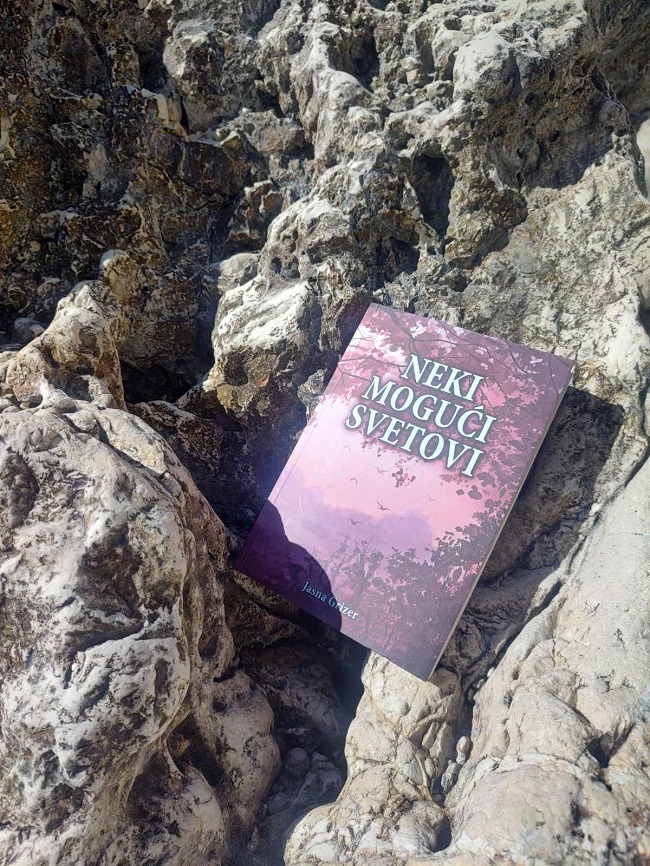
The wind blew hard, opened the living room window, and a vase with yellow daffodils broke into small pieces, which Darja couldn’t clean entirely in the days that followed.
The night she killed her husband, she buried his body in the garden and spread manure on top of the grave. Then she went back to the house, entered the bedroom, and straightened the sheets. She went to sleep, and for the first time since she was married, she didn’t wake up till dawn.
An excerpt from the novel
Translated by: Suzana Belos
